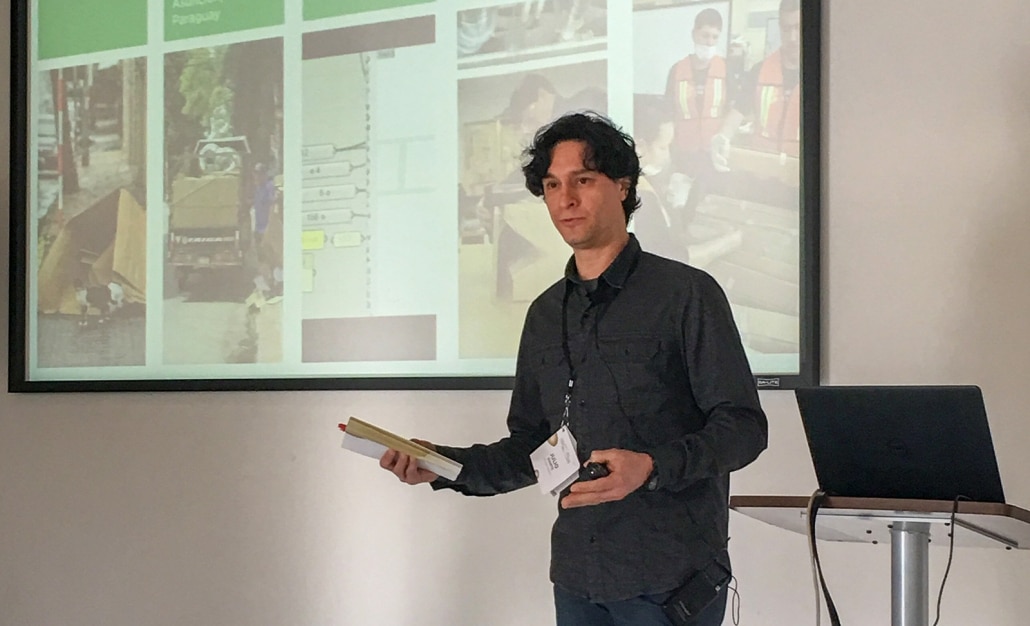UNIVERSITY PARK, Pa. — Julio Diarte, an architecture doctoral candidate in the Stuckeman School who is focusing his research on repurposing waste materials for low-cost housing, has been named a 2020 Engineering for Change (E4C) Research Fellow.
The E4C Research Fellowship Program is extremely competitive; more than 420 applications from 72 countries were whittled down to the 2020 cohort of 25 researchers. The program is designed to prepare professionals to solve local and global challenges and create knowledge as a public good. Fellows support the development of research collaborations defined together with E4C’s local and global partners.
A native of Asunción, Paraguay, Diarte said the fellowship program stood out to him because of its ability to run remotely while allowing him to continue his work, which focuses on developing technologies for upcycling waste cardboard as construction materials for low-cost housing.
As a researcher, Diarte believes it is essential to facilitate conversations with people around the world to promote diversity and to communicate the importance of his work. He is also fascinated by research that can be accomplished in collaboration with international institutions that are working on real-world problems in underserved communities.
“I thought this fellowship could be an excellent opportunity to connect with these institutions and learn what they do, how they work and potentially work with them in the future,” he said. “I became interested in global development because we are living in an ‘all hands-on-deck’ environment where underserved communities worldwide demand the collaboration of architects and designers to improve their environment.”
As an E4C Fellow in the Habitat sector, Diarte is part of a multidisciplinary research team that collaborates with Penn State. The research investigates affordable housing and disaster risk reduction in East African countries.
“In addition to the research collaboration between E4C and Penn State, I will be researching technologies that will be incorporated in the E4C Solutions Library,” Diarte said. “The library is a living database of innovative products and services for those living in resource-constrained environments. The library includes technologies in agriculture, energy, habitat, health, informational and communications technology, sanitation, transportation, and water.”
Diarte is excited about the opportunities that will open up after he completes the fellowship because of the team he will be working on, which includes researchers from many countries working in different areas. He believes the fellowship will strengthen his professional development in the sector and the networking opportunities could help him establish future research collaborations or projects.
“This fellowship is an opportunity to be part of a unique worldwide network of professionals working on global development,” Diarte said. “I believe the experience will strengthen my expertise as an architecture researcher interested in contributing to projects for underserved communities worldwide.
E4C is a non-profit organization made up of engineers, technologists, designers, social entrepreneurs, nongovernmental organizations and community advocates who are committed to improving the quality of life in communities around the world by facilitating the development of affordable, local appropriate and sustainable solutions to the most pressing social challenges.
More about the fellowship program can be found at https://www.engineeringforchange.org/e4c-fellowship/.

 Study Architecture
Study Architecture  ProPEL
ProPEL 
